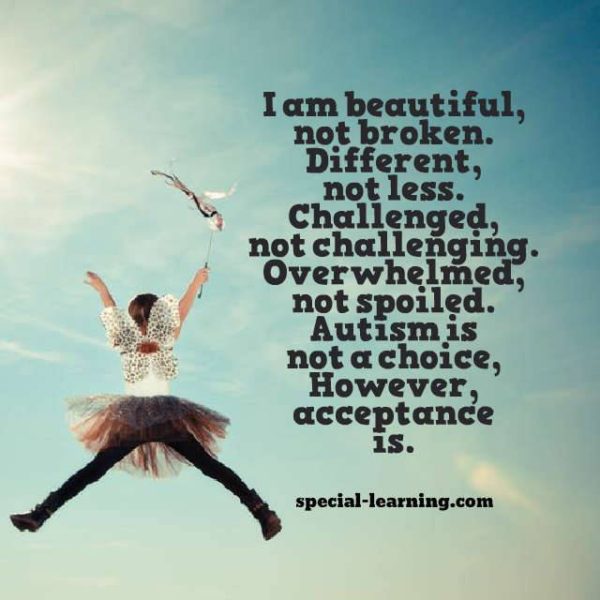
What would we do without differences? Where would we be without the unique spectrum of minds all looking at this world in neurologically distinct ways? Would we know about the theory of relativity if Einstein had not obsessively repeated sentences until he was 7 years old? Would we have Symphony No.40 in G minor or Don Giovanni, if Mozart wasn’t compelled to constantly move his hands and feet? Difference is what makes life interesting and creative; something we should keep in mind during National Autism Awareness Month.
Autism isn’t just one thing: it’s a range of individually specific ways of connecting with others and processing information. For some, a diagnosis of Autism can simply mean having a few more social challenges. For others, it can mean being completely non-verbal and showing intense discomfort in social settings.
It’s likely that you have interacted with a person with Autism without even knowing. Have you ever been out in public and witnessed someone having a “meltdown”? Have you ever seen a kid suddenly become overwhelmed by what seems like nothing at all? Have you ever found yourself on a plane seated next to a screaming child? Most likely you have had at least one of these experiences. Now, not all of these scenarios means the individual has Autism, but we often jump to blame or criticism when we witness such behavior. Think back to what you thought the last time you saw a child having a meltdown. Were you annoyed with the child or with the parent for not removing the child? Did you feel bad for the child or the parent? Did you turn and walk away because you felt uncomfortable?
As the CPST Coordinator at Catalyst, I’m keenly aware of the challenges these individuals and their families’ face. I asked a couple of parents, whose children were diagnosed with Autism, what they wish people knew about their lives, and what they wish people would do when interacting with their child.
Continue Reading
 As Ohioans, we all know that once the temperature climbs above the low 50’s we’re dusting off our grills in eager (almost desperate) anticipation of summer. What’s better than a cloudless summer day, lounging around with family and friends, while the smell of mesquite wafts in the breeze? Unfortunately, this favored activity also comes with risks.
As Ohioans, we all know that once the temperature climbs above the low 50’s we’re dusting off our grills in eager (almost desperate) anticipation of summer. What’s better than a cloudless summer day, lounging around with family and friends, while the smell of mesquite wafts in the breeze? Unfortunately, this favored activity also comes with risks.
